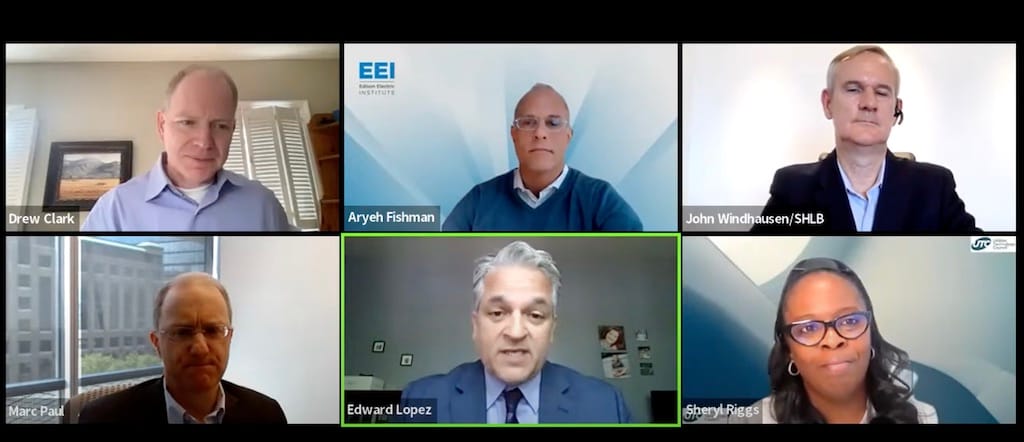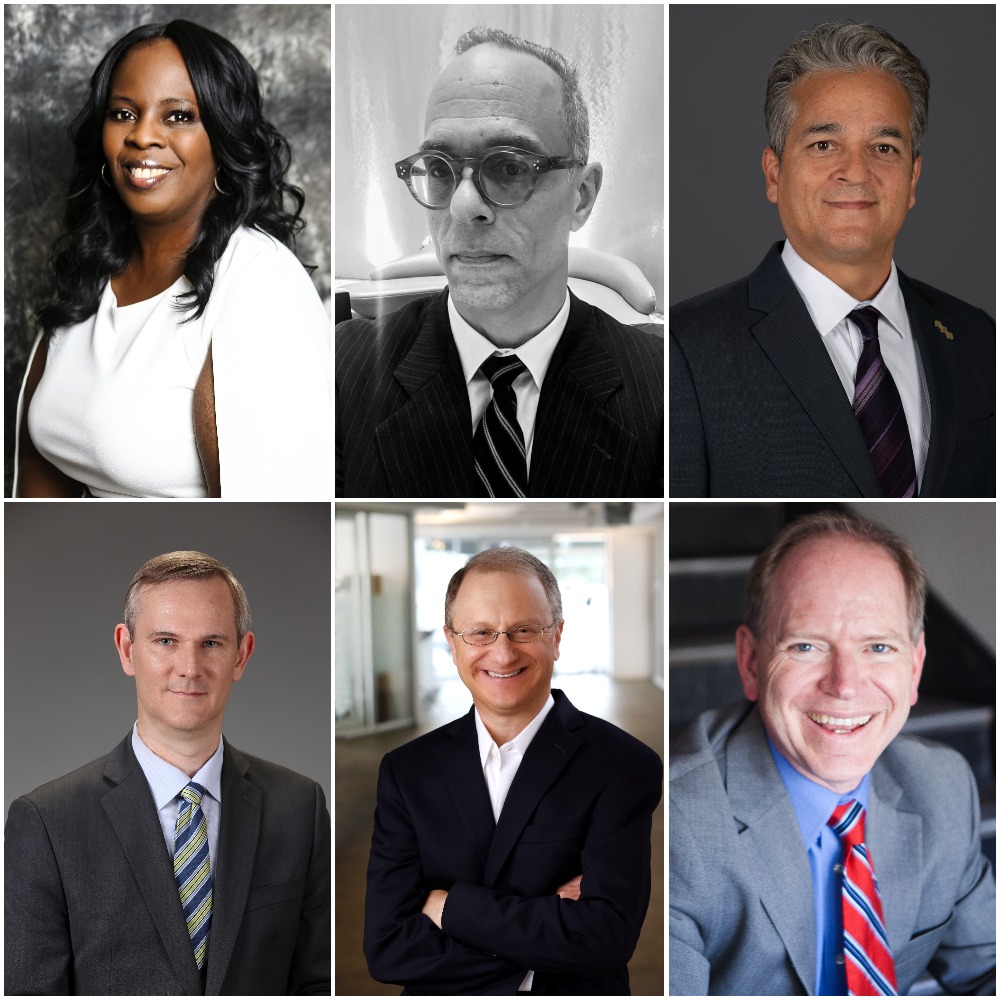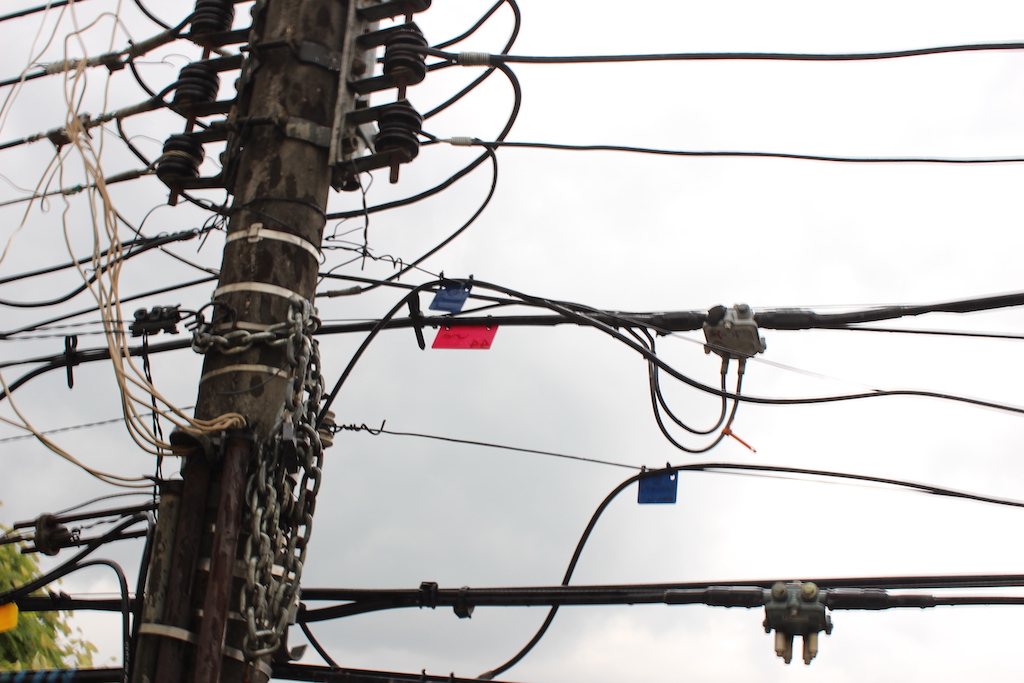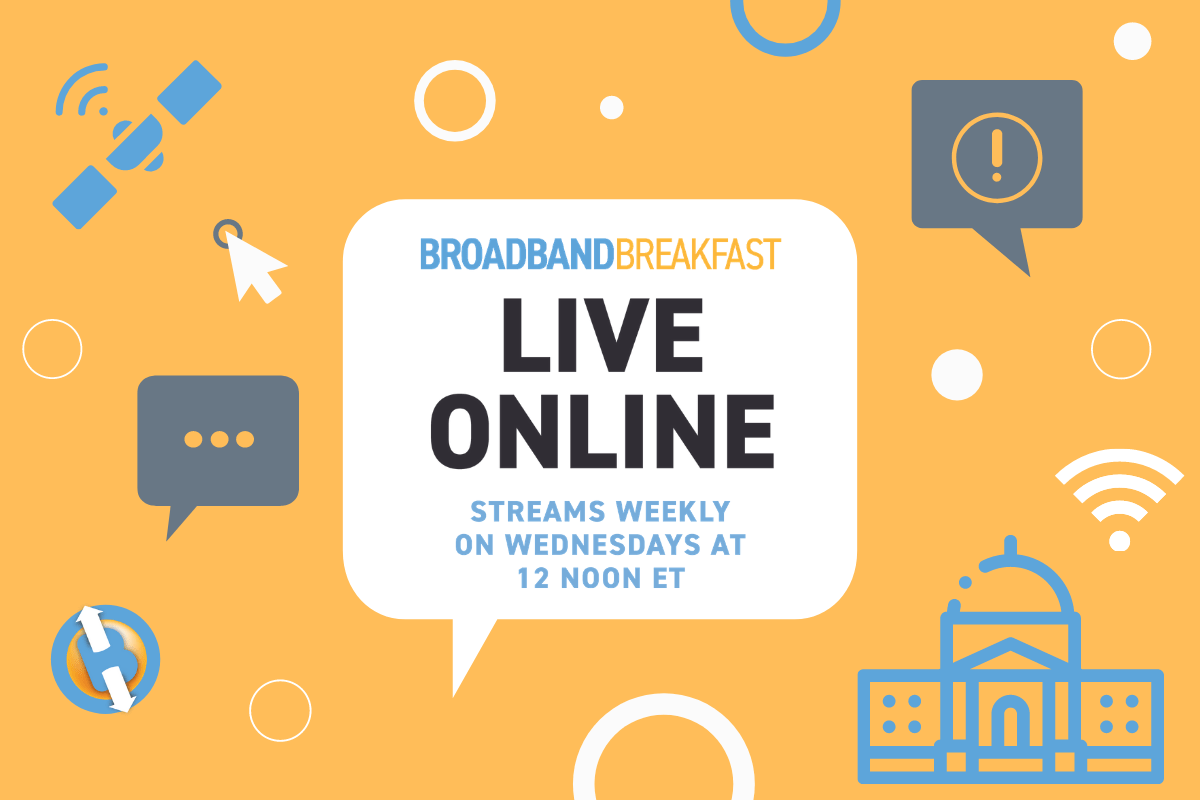Utilities, Broadband Providers Split on Pole Attachment Rate Policy
Utilities Technology Council CEO Sheryl Riggs questioned whether broadband access is expanded if costs just float to ratepayers.

WASHINGTON, June 7, 2022 – A contentious debate about whether the Federal Communications Commission should force pole-attachment rates to expedite broadband deployment shows no signs of abating.
During a Broadband Breakfast Live Online conversation on the topic in late April, representatives from utilities split from representatives of broadband providers and nonprofits, arguing for changes to current FCC policies.
In March, the FCC voted to seek comment on how utilities and pole attachers would share in the costs of pole replacements.
The event, which took place on April 27, examined ratepayer experience in terms of pole access, with significant contribution from Western Carolina University professor of economics Edward Lopez as he brought his experiences conducting research on how much from a quantitative perspective current policy on poles truly serves public interest.
Lopez pointed to a lack of competition in pole attachment as holding up public welfare and has found, through his studies, particular problems with this in North Carolina.
It is not a lack of investment into pole attachment which causes gaps in broadband service, he said. noting considerable attention to and funding for broadband through the Infrastructure Investment and Jobs Act and the FCC’s Rural Digital Opportunity Fund.
“The investment is there,” said Lopez.
According to Lopez, Florida and Kentucky are two of the states where delays like this that prevent expansion of connectivity create the most pronounced financial losses.
Others the panel, including internet provider Charter Communications’ vice president of policy Marc Paul, praised the commission’s efforts to expedite pole attachments.
Utilities Technology Council CEO Sheryl Riggs said that to develop effective policy, broadband ratepayers must become involved in the discussion of possibilities.
“We need to get them involved, educated and in conversations as well so that they can provide insight and input,” said Riggs.
Riggs emphasized the need for collaboration between all entities involved in policymaking, such as her own UTC, with governmental bodies rather than just relying on FCC to resolve all issues surrounding pole attachment.

She noted that federal statute does not require utilities to replace the poles that hold fiber lines during ongoing servicing to expand broadband, but that the utility companies have done and will continue to do so in the interest of working to improve service for the public.
In the absence of successful, substantive action on pole policy, Riggs cautioned that project costs could just float down to ratepayers and prevent policymakers from being able to say they increasing access in unserved and underserved areas.
“If it’s going to come down to the utilities and then it’s going to just float to the ratepayers then have we really resolved the issue of deploying broadband to unserved areas, or underserved areas?” she asked.
Our Broadband Breakfast Live Online events take place on Wednesday at 12 Noon ET. Watch the event on Broadband Breakfast, or REGISTER HERE to join the conversation.

Wednesday, April 27, 2022, 12 Noon ET – New Wires on Old Poles: Will the FCC Change Rules for Attachments?
The Federal Communications Commission has recently proposed rulemaking to resolve disputes surrounding pole replacement and attachment. Several industry groups have long sought out such action. Do the FCC’s actions go far enough? What did they get right, and what approaches need adjustment? Join us for this Broadband Breakfast event as panelists offer their views on this ongoing issue.
Panelists:
- Sheryl Riggs, CEO, Utilities Technology Council
- Aryeh Fishman, Associate General Counsel, Edison Electric Institute
- Edward Lopez, Professor, Western Carolina University
- John Windhausen, Executive Director, Schools, Health & Libraries Broadband Coalition
- Marc Paul, Vice President, Policy, Charter Communications
- Drew Clark (presenter and host), Editor and Publisher, Broadband Breakfast
Panelist resources:
- “FCC Seeks Comment on Pole Replacement Rules,” Broadband Breakfast, March 18, 2022
- “Pole Access Delays Cost Americans Millions a Month, Report Claims,” Broadband Breakfast, December 2, 2021
- Waiting for Broadband Access: The Pole Access and Replacement Timeline, Connect the Future, April 2022
- Advancing Pole Attachment Policies to Accelerate National Broadband Buildout, Connect the Future, November 2021
- Utility Pole Policy: A Cost-Effective Prescription for Achieving Full Broadband Access in North Carolina, NCCTA, August 18, 2021
- Draft FCC Pole Attachment FNPRM Gets Industry Backing, Communications Daily, March 9, 2022
- “The Backbone of Broadband Infrastructure: Understanding the Importance of Utility Poles,” Video by Connect the Future

Sheryl Osiene-Riggs was named UTC’s President and CEO in June 2020, after serving as Interim President and CEO and Senior Vice President, Finance and Operations. Prior to joining UTC, she worked with organizations in the banking/finance, education, and health and social services industries. Ms. Riggs earned her Bachelor’s degree from Howard University, and she also conferred two Master’s degrees in Accounting and Human Resources Management.
Aryeh Fishman serves as Associate General Counsel, Regulatory Legal Affairs, for the Edison Electric Institute (EEI), the trade association representing U.S. investor-owned electric companies that collectively own and operate vast overhead electric systems, including utility poles, as part of the electric industry’s mission to provide reliable, safe, secure, and efficient delivery of power to the public. He has worked on a broad variety of legal and public policy issues impacting the investor-owned electric industry, including pole attachments, colocation, middle mile fiber deployments, and spectrum.
Edward Lopez is Professor of Economics, BB&T Distinguished Professor of Capitalism, and Director of the Center for the Study of Free Enterprise at Western Carolina University. He has taught university economics for over two decades and has authored over 60 scholarly publications and two books. He holds a Ph.D. in economics from George Mason University, where his fields of concentration were public economics and industrial organization.
John Windhausen serves as the Executive Director of the the SHLB Coalition, a nonprofit, 501(c)(3) public interest advocacy organization that strives to close the digital divide by promoting open, affordable, high-quality broadband for anchor institutions and their communities. He founded the coalition in 2009 with the support of the Bill & Melinda Gates Foundation. He spearheads SHLB’s membership growth and shapes its broadband policy recommendations.
Marc Paul is Vice President, Policy and External Affairs at Charter Communications. During his career, Mr. Paul has held positions as a Legal Advisor to a Commissioner at the Federal Communications Commission, as Senior Counsel to a U.S. Senator, and the position of Of Counsel for two private law firms. Mr. Paul holds a law degree from the University of Pennsylvania Law School and a BA from Cornell University.
Drew Clark is the Editor and Publisher of BroadbandBreakfast.com and a nationally-respected telecommunications attorney. Drew brings experts and practitioners together to advance the benefits provided by broadband. Under the American Recovery and Reinvestment Act of 2009, he served as head of a State Broadband Initiative, the Partnership for a Connected Illinois. He is also the President of the Rural Telecommunications Congress.

Photo by Nicolás Gutierrez londoño from PxHere used with permission
WATCH HERE, or on YouTube, Twitter and Facebook.

As with all Broadband Breakfast Live Online events, the FREE webcasts will take place at 12 Noon ET on Wednesday.
SUBSCRIBE to the Broadband Breakfast YouTube channel. That way, you will be notified when events go live. Watch on YouTube, Twitter and Facebook.
See a complete list of upcoming and past Broadband Breakfast Live Online events.








